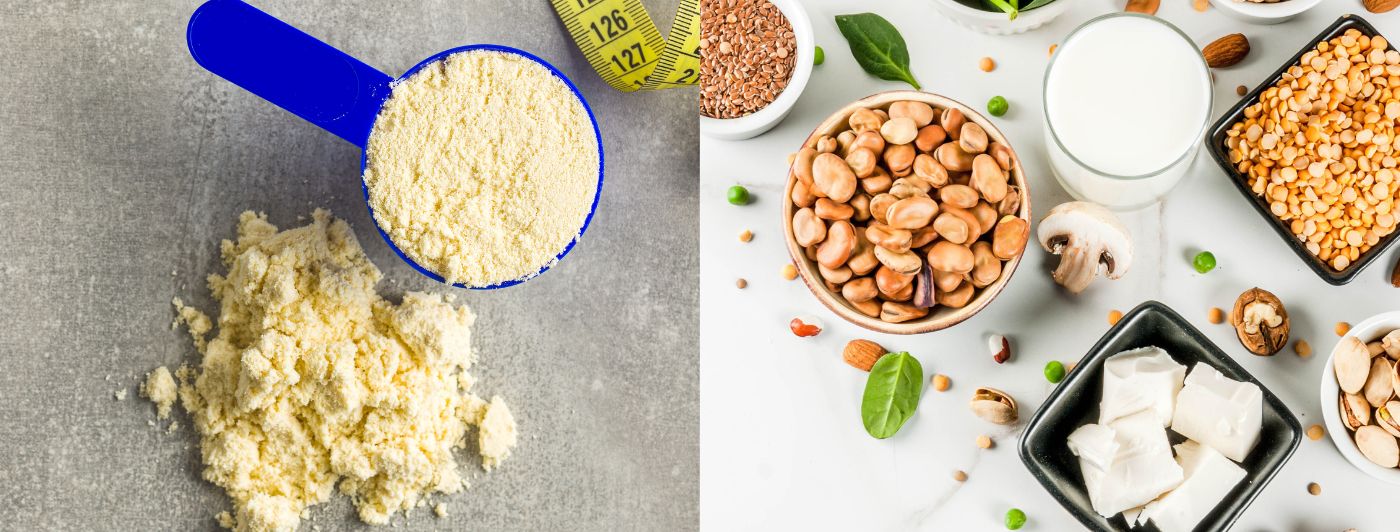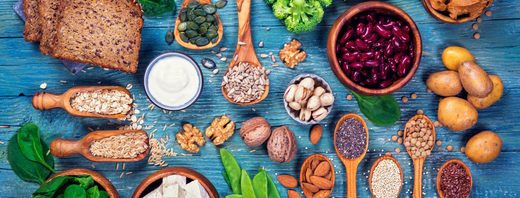When it comes to supplementing your diet with protein powder, the digestibility of the protein source is an important factor to consider. Digestibility refers to how well the body can break down and absorb the amino acids from a given protein. The higher the protein digestibility, the more efficiently the body can utilize the protein. So, how do whey protein and vegan protein sources compare in terms of digestibility?
Whey Protein: A Digestibility Dilemma
Whey protein, derived from milk, is often praised for its high digestibility, typically around 100%. However, this apparent advantage is overshadowed by several issues that complicate its digestion:
- Lactose Content: Many individuals are lactose intolerant, which means they lack the enzyme lactase needed to digest lactose, a sugar found in whey. This intolerance can lead to symptoms like gas, bloating, and diarrhea, making whey protein less digestible for a significant portion of the population.
- Processing and Additives: Whey protein undergoes extensive processing to isolate the protein, which can introduce additives like artificial sweeteners and preservatives. These additives can negatively affect digestion and overall gut health, leading to potential digestive discomfort.
- Allergenic Potential: Even for those who can digest lactose, whey protein can cause allergic reactions or sensitivities due to its origin from milk. This can result in digestive issues such as cramps, nausea, and even more severe allergic reactions in some cases.
Plant-Based Protein: A Digestive Advantage
Plant-based proteins, derived from sources such as peas, hemp, rice, and soy, offer several benefits that can make them easier to digest compared to whey protein:
1) Naturally Lactose-Free
Plant-based proteins do not contain lactose, making them a safe and easy-to-digest option for those with lactose intolerance or sensitivities. This natural advantage makes plant proteins more universally digestible.
2) Lower Allergenic Potential
Unlike whey, plant-based proteins are less likely to cause allergies or sensitivities. They are free from common allergens like dairy, making them gentler on the digestive system.
3) High Fiber Content
Many plant-based protein powders retain some of the natural fiber from their source plants. Fiber aids in digestion by promoting a healthy gut microbiome and regular bowel movements, which can enhance overall digestive health.
4) Less Processing
Plant-based proteins typically require minimal processing, preserving their natural nutrients and making them easier to digest. This contrasts with the extensive processing required for whey protein, which can strip away beneficial components and introduce harmful additives.
Moreover, plant-based protein powders are quite comparable to whey in terms of effectiveness. A 2019 study found that whey and pea proteins similarly enhance strength, performance, body composition, and muscle adaptations. Additionally, a 2013 clinical study concluded that brown rice protein is equivalent to whey protein in building muscle, gaining strength, and aiding in recovery.
Comparing Digestibility Rates
Vegan protein sources, like those derived from plants, can have varying protein digestibility rates depending on the specific source. Some of the most commonly used vegan protein sources and their approximate digestibility rates are:
- Soy Protein: Soy protein boasts a high digestibility rate of around 92-97%, making it comparable to whey in terms of how well the body can absorb and utilize its amino acids.
- Pea Protein: With a digestibility rate of 80-90%, pea protein is another excellent plant-based option that offers good digestibility without the drawbacks of whey.
- Rice Protein: Although it has a slightly lower digestibility rate of 76-88%, rice protein is still a viable option, particularly when combined with other plant proteins to form a complete amino acid profile.
- Hemp Protein: Hemp protein's digestibility ranges from 86-91%, and it is celebrated for being easy on the stomach due to its unique protein composition, which includes edestin and albumin.
As you can see, while some vegan protein sources like soy and hemp have relatively high protein digestibility rates, others like rice protein tend to be less digestible. This variation can be attributed to factors like the presence of anti-nutritional compounds (e.g., phytic acid, tannins) and the amino acid profile of the protein source.
These rates indicate that many plant-based proteins can match or even exceed the digestibility of whey, especially when considering the absence of lactose and lower allergenic potential.
Enhancing Plant-Based Protein Digestibility
Even though plant-based proteins already have several protein digestibility advantages, there are ways to further enhance their digestibility:
- Enzyme Supplementation: Adding digestive enzymes such as proteases can help break down plant-based proteins more effectively, increasing their digestibility.
- Combining Protein Sources: Mixing different plant-based proteins can provide a complete amino acid profile, improving overall absorption and utilization by the body.
- Optimal Processing Methods: Techniques such as fermentation or germination can reduce anti-nutritional compounds in plant-based proteins, making them easier to digest and more bioavailable.
Companies recognized as the best plant based vegan protein powder company in India offer a variety of high-quality, digestible, and nutrient-rich options that can support your muscle growth and overall health.
Wrap Up
While whey protein has long been considered a standard for digestibility, the numerous drawbacks associated with its consumption make it a less optimal choice. On the other hand, plant-based proteins offer significant digestive benefits, including being naturally lactose-free, less processed, and lower in allergens.
Hence, when selecting the best plant based vegan protein powder for muscle gain, it’s crucial to consider factors like enzyme supplementation, combining protein sources, and optimizing processing methods. These strategies can significantly enhance the digestibility of vegan proteins, ensuring adequate absorption of essential amino acids and making them an excellent choice for those seeking effective muscle growth alternatives to whey.











